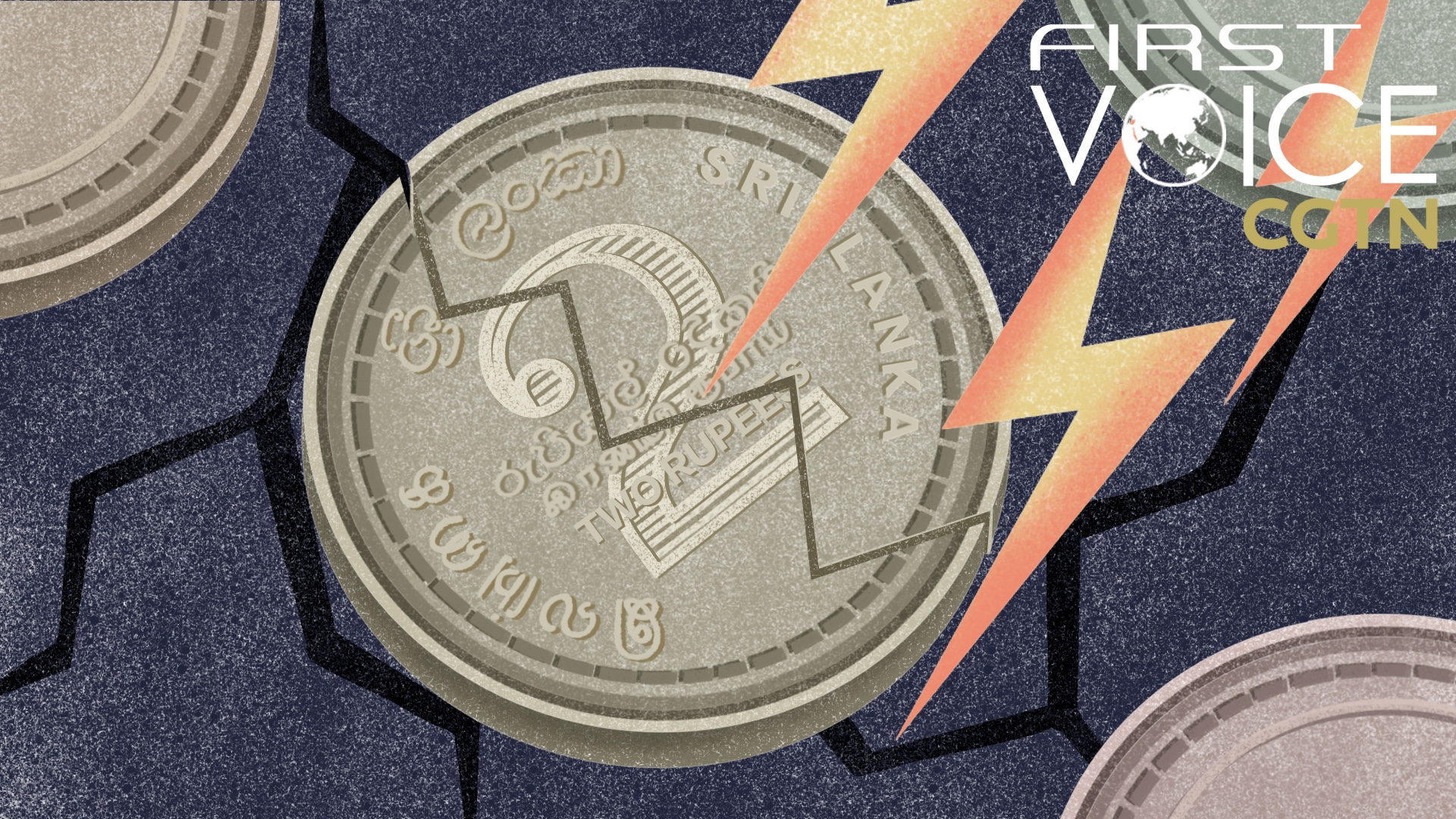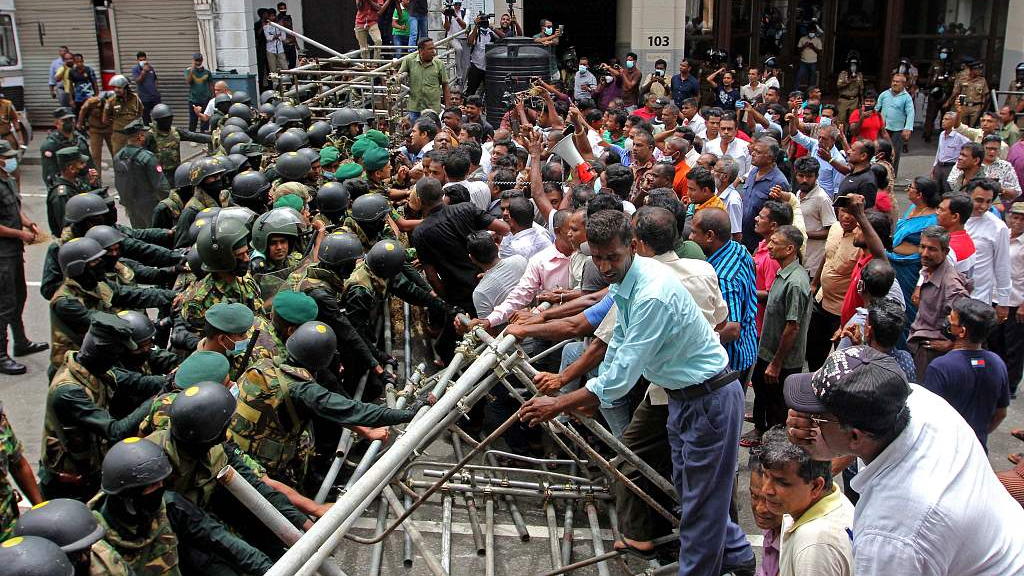
Sri Lanka's rapid deterioration can only be described as the unintended consequence of the turmoil in the international community for the past few years. /CGTN
Sri Lanka's rapid deterioration can only be described as the unintended consequence of the turmoil in the international community for the past few years. /CGTN
Editor's note: CGTN's First Voice provides instant commentary on breaking stories. The daily column clarifies emerging issues and better defines the news agenda, offering a Chinese perspective on the latest global events.
Last week, Sri Lanka was declared bankrupt by its Prime Minister Ranil Wickremesinghe. This week, President Gotabaya Rajapaksa has confirmed he will step down after thousands of protesters stormed the presidential palace.
For months, Sri Lanka has been experiencing what many describe as its worst crisis in recent memory. Last month, it ran out of money to pay for food and fuel. The Sri Lankan currency, the rupee, has been devalued by 80 percent. The UN World Food Programme calculates that nearly nine out of 10 families are skipping meals or stretching out the food. Three million people are receiving emergency humanitarian aid.
The government owes $51 billion – and its total economy is only $81 billion.
The West may refuse to believe this, but no matter what they say about Sri Lanka defaulting on foreign loans due to "China's debt-trap policy," China is neither the island's largest debtor nor hold sufficient influence to tank the economy single-handedly. Official data from Sri Lanka's Department of External Resources shows that at the end of April 2021, nearly 47 percent of Sri Lanka's foreign debt was owned by Western funds and banks. In addition, the Asian Development Bank owned another 13 percent while China and Japan each owned about 10 percent. Yet no one is saying anything about the "Japanese debt trap."
Sri Lanka's rapid deterioration can only be described as the unintended consequence of the turmoil in the international community for the past few years. The China-U.S. trade war, the COVID-19 pandemic and the Ukraine conflict have severely disrupted the global supply chain and operation of businesses across all sector. Tourism, which accounted for 12.6 percent of Sri Lanka's GDP, was all but wiped out by the virus and the lingering fear resulting from the 2019 terrorism attacks. With the Ukraine conflict, oil and food prices were pushed up even higher with food costs rising by 57 percent, according to media reports, and inflation is near 40 percent.

Farmers take part in an anti-government protest demanding the resignation of Sri Lankan President Gotabaya Rajapaksa over the country's ongoing economic crisis in Colombo, Sri Lanka, July 6, 2022. /VCG
Farmers take part in an anti-government protest demanding the resignation of Sri Lankan President Gotabaya Rajapaksa over the country's ongoing economic crisis in Colombo, Sri Lanka, July 6, 2022. /VCG
Major powers and big economic entities tend to overlook the impact of chaos on smaller countries. Sri Lanka is not alone in its turmoil. Peru has seen protests erupting because of the rising cost of oil and fertilizer. Zimbabwe is going through a food crisis of its own. Pakistan narrowly escaped a debt default in May. Laos is struggling to control its inflation and provide energy for its domestic demand.
China and India have been sending assistance to Sri Lanka but the root cause must be addressed. Years of chaos need to end.
The West should know this because the Western countries themselves are experiencing chaos as well. The U.S. is experiencing uncontrollable inflation. Germany is reported to be rationing hot water, dimming streetlights and closing pools to cope with the energy crisis. Canada had to exempt Russian gas turbines from sanctions despite Ukraine's objections.
Letting the chaos stretch on serves no one's interests. Focusing too much on the dominant wars blinds the eyes from seeing others struggling and falling. Continuing to do so would have Sri Lanka's scenario repeated all across the globe. The major powers must find a way to cool the global system and return to order as well as rule- and logic-based decision-making.
(If you want to contribute and have specific expertise, please contact us at opinions@cgtn.com. Follow @thouse_opinions on Twitter to discover the latest commentaries in the CGTN Opinion Section.)

